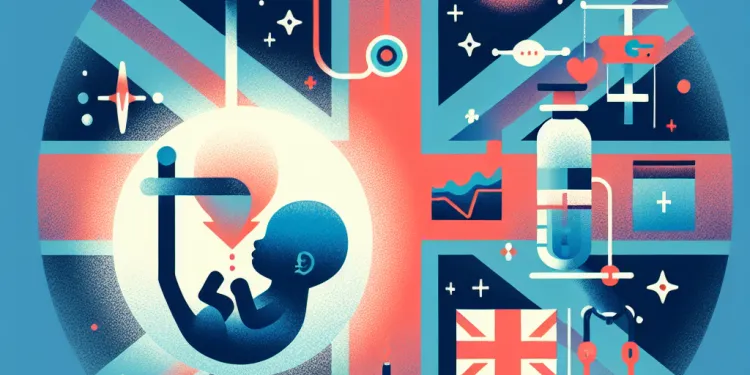
Find Help
More Items From Ergsy search
-
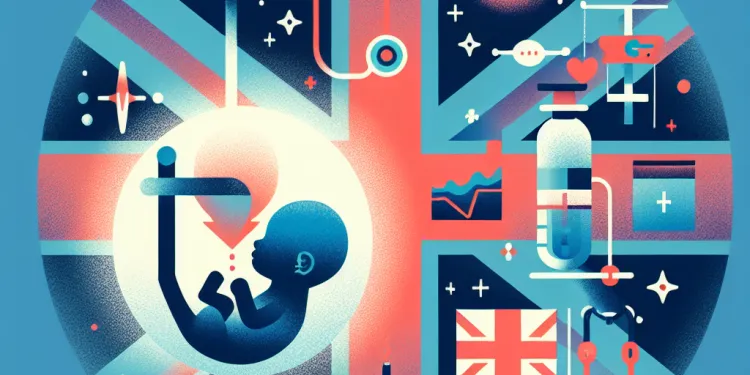
What are the risks associated with a C-section?
Relevance: 100%
-

Is a C-section a common procedure in the UK?
Relevance: 82%
-

Will I be awake during a C-section?
Relevance: 72%
-

Are there any dietary restrictions before a C-section?
Relevance: 72%
-

How should I prepare for a C-section?
Relevance: 72%
-
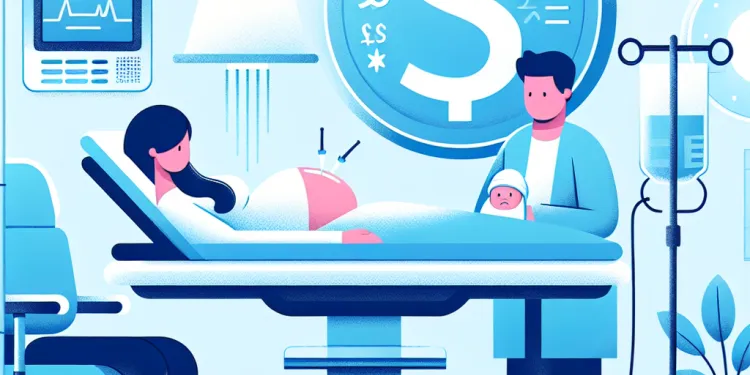
Can my partner be present during the C-section?
Relevance: 68%
-
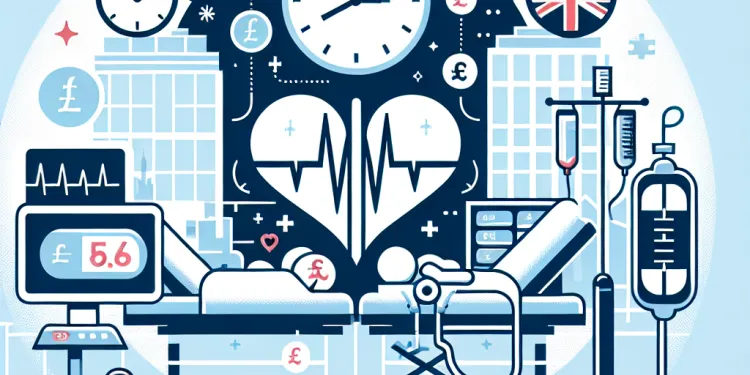
How long will I stay in hospital after a C-section?
Relevance: 65%
-
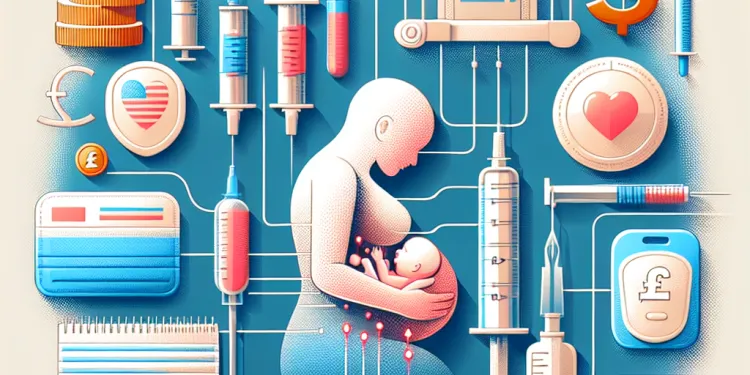
How can I manage pain after a C-section?
Relevance: 56%
-

What is the recovery process like after a C-section?
Relevance: 46%
-

Why might a Caesarean birth be necessary?
Relevance: 41%
-
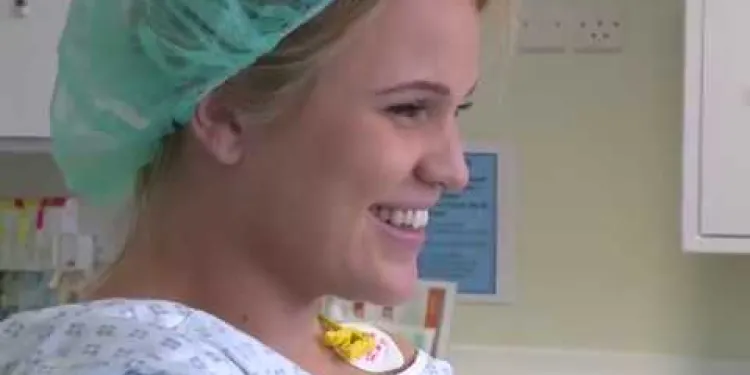
Your Caesarean birth
Relevance: 39%
-

Can I have a natural birth after a Caesarean section?
Relevance: 39%
-

What is a Caesarean birth?
Relevance: 38%
-

How long does it take to recover from a Caesarean birth?
Relevance: 36%
-

Having a Caesarean Section
Relevance: 30%
-

Are there risks associated with IVF?
Relevance: 28%
-

Who is at higher risk for thrombosis?
Relevance: 27%
-

What are the risk factors for thrombosis?
Relevance: 27%
-

Who is at risk for testicular cancer?
Relevance: 27%
-

Who is at risk for developing BPH?
Relevance: 27%
-

Who is at risk of developing shingles?
Relevance: 27%
-
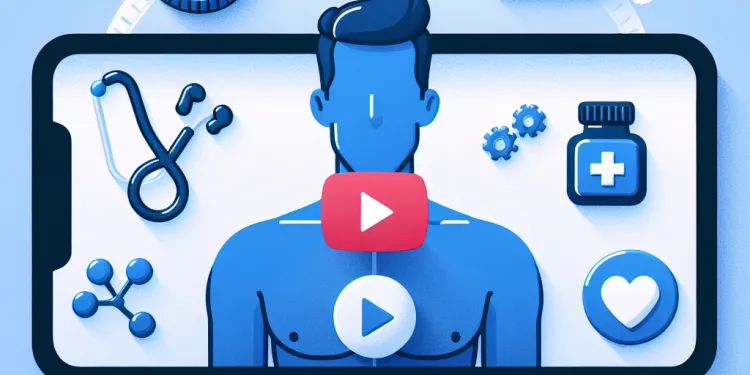
Am I more at risk of prostate cancer?
Relevance: 27%
-

Who is at risk of developing SAD?
Relevance: 27%
-

Who is at risk for flesh-eating disease?
Relevance: 27%
-

Are there any risks associated with facelifts?
Relevance: 27%
-

Who is at risk of developing eczema?
Relevance: 27%
-

What are the risks associated with cryptocurrencies?
Relevance: 27%
-

Is there any risk of hypoglycemia with Mounjaro?
Relevance: 26%
-

Are there risks associated with blood transfusions?
Relevance: 26%
-

What is the risk of miscarriage? | NHS
Relevance: 26%
-

Are there any risks associated with mammograms?
Relevance: 26%
-

Are adults in the UK at risk from measles?
Relevance: 26%
-

What are the risk factors for bowel cancer?
Relevance: 25%
-

Is there a risk of thyroid tumors with Ozempic?
Relevance: 25%
-
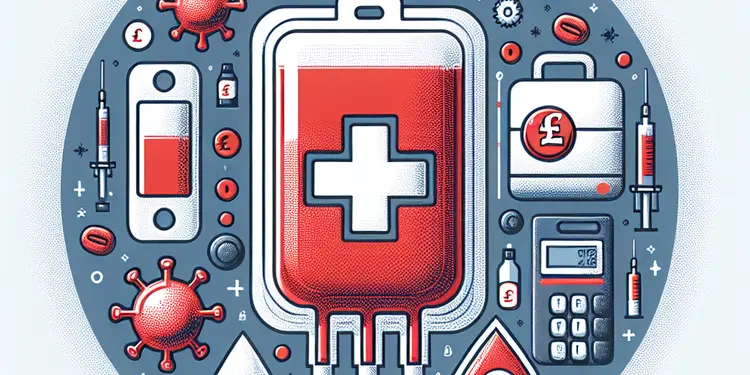
Is HTLV a risk in blood transfusions?
Relevance: 25%
-
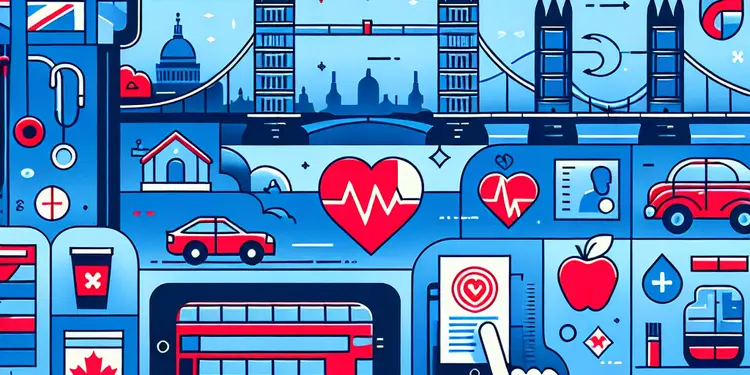
What are the risk factors for a heart attack?
Relevance: 25%
-

Who is at risk of developing Alzheimer's disease?
Relevance: 25%
-

Who is most at risk from measles?
Relevance: 25%
-

Is genetic screening available for cancer risk?
Relevance: 25%
-

Is there a risk of permanent nerve damage?
Relevance: 25%
Introduction
A Caesarean section, commonly known as a C-section, is a surgical procedure used to deliver a baby through incisions in the abdomen and uterus. While it can be a life-saving procedure for both mother and baby in certain scenarios, it also carries various risks.
Increased Infection Risk
One of the primary risks associated with a C-section is the increased chance of infection. As with any surgical procedure, an incision in the skin can become a site for bacterial infection. Postoperative infections can occur at the site of the incision, in the uterus, and in other pelvic organs.
Longer Recovery Time
Recovering from a C-section typically takes longer than recovering from a vaginal birth. Women who undergo a C-section may experience longer periods of pain and discomfort and may require additional help when caring for their newborn. This extended recovery period can impact a new mother’s ability to resume normal activities.
Increased Blood Loss
C-sections generally involve more blood loss compared to vaginal deliveries. While the healthcare team will take precautions to manage blood loss, there remains a risk of significant bleeding that may require a blood transfusion.
Risks to the Baby
C-section delivery can pose some risks to the baby as well. There is a slightly increased risk of respiratory problems for babies delivered via C-section, particularly if they are born before 39 weeks of gestation. Additionally, very rarely, a surgical cut could accidentally injure the baby during the operation.
Potential Impact on Future Pregnancies
Having a C-section can affect future pregnancies. Women who have had a C-section are at an increased risk of complications such as uterine rupture and abnormal placental placement in subsequent pregnancies. Some women may require repeat C-sections, depending on their specific circumstances and medical advice.
Adhesion Formation
Adhesions, which are bands of scar tissue, can form after a C-section and can cause organs to stick together. This may lead to complications such as pain, bowel blockage, or issues in future abdominal surgeries.
Emotional and Psychological Impact
Some women may experience feelings of disappointment or failure if they had not planned on a C-section. There may also be a risk of postnatal depression or anxiety as a result of the birth experience not meeting expectations.
Conclusion
While C-sections can be crucial interventions for the safety of the mother and baby, it is important for prospective mothers to discuss potential risks and benefits with their healthcare provider. Understanding these risks can help women make informed decisions about their birthing plans and postnatal care.
Introduction
A Caesarean section, or C-section, is a special surgery to help deliver a baby. Doctors make cuts in the belly and uterus to get the baby out. It can save lives for moms and babies when needed, but it also has some risks.
Increased Infection Risk
A big risk of having a C-section is getting an infection. When the skin is cut, germs can get in and cause problems. Infections can happen where the cut is, inside the tummy, or in other parts down there.
Longer Recovery Time
Getting better after a C-section usually takes more time than after a normal birth. Moms might feel more pain and need extra help with their new baby. This longer healing time can make it hard to get back to normal things.
Increased Blood Loss
C-sections can make you lose more blood than having a baby the usual way. Doctors try to stop too much bleeding, but sometimes it can be bad and need a blood transfusion.
Risks to the Baby
Babies born by C-section have some risks too. They might have more trouble breathing if born before 39 weeks. Sometimes, small cuts might happen by accident during the surgery.
Potential Impact on Future Pregnancies
If a mom has a C-section, it can change how future pregnancies go. There can be more risks, like the womb tearing or the placenta being in a tricky spot. Some moms might need another C-section later on.
Adhesion Formation
After a C-section, sticky scar tissue called adhesions can form. These can make organs stick together, which can cause pain or problems later.
Emotional and Psychological Impact
Some moms might feel sad if they didn't plan to have a C-section. They might feel down if the birth wasn't what they hoped for. This can also lead to feeling anxious or depressed.
Conclusion
C-sections can be very important to keep moms and babies safe. It's good for moms to talk with their doctors about what might happen. Knowing about the risks can help moms make good choices for their birth and aftercare.
Frequently Asked Questions
What are the common risks of a C-section?
Common risks include infection, blood loss, and blood clots in the legs or lungs.
Can a C-section cause complications in future pregnancies?
Yes, risks for future pregnancies include uterine rupture and placenta problems.
Is there an increased risk of infection with a C-section?
Yes, there's a higher risk of infection at the incision site or in the uterus.
How does a C-section affect recovery time?
Recovery time is generally longer compared to a vaginal birth, taking several weeks.
Are there risks to the baby during a C-section?
Babies born via C-section may have breathing difficulties and are at a higher risk for surgical injury.
Does a C-section increase the chance of blood clots?
Yes, there's an increased risk of blood clots in the legs or lungs after a C-section.
Can a C-section result in scar tissue formation?
Scar tissue can form at the incision site, which may cause complications in future surgeries.
What is a uterine rupture, and is it associated with C-sections?
Uterine rupture is a tear in the uterine wall and can be a risk in subsequent pregnancies after a C-section.
Can a C-section lead to anesthesia complications?
Yes, risks include reactions to anesthesia or medication side effects.
Is placenta previa more common after a C-section?
Yes, having a C-section can increase the risk of placenta previa in future pregnancies.
Does a C-section impact future fertility?
While not common, some women may experience issues with fertility after a C-section.
Can a C-section cause bowel or bladder injury?
There is a small risk of surgical injury to nearby organs such as the bladder or bowel during a C-section.
Is longer hospital stay required after a C-section?
Yes, typically a C-section requires a longer hospital stay than a vaginal delivery.
Are there psychological effects associated with C-sections?
Some mothers may experience emotional distress or feelings of disappointment after a C-section.
Can a C-section affect breastfeeding?
Some women may experience breastfeeding challenges after a C-section due to delayed lactation.
What are the risks of hemorrhage during a C-section?
There is a risk of excessive blood loss during the procedure, which may require transfusions.
Can surgical site infection occur with a C-section?
Yes, approximately 2-16% of women may develop infections at the incision site.
How does a C-section impact the likelihood of repeat C-sections?
Once a woman has a C-section, she is more likely to have a repeat C-section in future pregnancies.
Can adhesions form after a C-section?
Yes, adhesions or bands of scar tissue can form, potentially causing pain or complications.
Are respiratory problems a risk for the newborn?
Infants delivered via C-section are at a higher risk for transient tachypnea, a type of breathing issue.
What can go wrong with a C-section?
Some things can go wrong, like getting an infection, losing too much blood, or having a blood clot in your legs or lungs.
Can having a C-section cause problems in future pregnancies?
Yes, there can be problems with future pregnancies. These problems can include the uterus tearing and issues with the placenta.
Do you get more infections after a C-section?
If you're having a C-section, you might wonder if it's easier to get an infection. This is when germs make you sick.
Here are some things to help you stay healthy:
- Wash your hands often.
- Keep the cut on your tummy clean.
- Ask your doctor about using medicines to stop infections.
If you need help understanding, ask a friend or family member to explain. You can also talk to your doctor for more information.
Yes, there is a bigger chance of getting an infection where the cut is or in the uterus (the part of the body where a baby grows).
How does a C-section affect recovery time?
A C-section is an operation to deliver a baby. It can make recovery take longer compared to a normal birth.
Here are some tips to help with recovery:
- Ask family or friends for help.
- Rest as much as you can.
- Use pillows to support your body when you sleep.
- Take short walks to stay active.
It takes longer to get better after this type of birth. It can take a few weeks to feel okay again.
Are there any dangers to the baby during a C-section?
Doctors use a C-section to help the baby come out of the mother's tummy. It is usually safe for the baby, but here are some things to know:
- Sometimes, the baby might have trouble breathing for a little while. The doctors and nurses are there to help the baby breathe better.
- The baby could get a little cut from the doctor’s tools, but this does not happen often. If it does, the doctor can fix it right away.
Ask your doctor or nurse if you have more questions. It can help to talk about how a C-section works before the baby is born.
If reading is hard, you can:
- Ask someone to read with you and explain the words.
- Use audiobooks or videos that tell you more about C-sections.
- Draw pictures of what you learn to help you remember.
When babies are born through C-section, they might have trouble breathing and there is a higher chance they could get hurt during the surgery.
Can having a C-section cause more blood clots?
Some tools can help you:
- Read out loud: Listen to the words as you read them.
- Use a dictionary: Check words you don't know.
- Ask someone: If you need help, ask a friend or family member.
Having a C-section can make it more likely to get blood clots in your legs or lungs.
Do you get scars from a C-section?
When you have surgery, the cut on your skin can heal with extra thick skin called scar tissue. This thick skin can make it tricky if you need another surgery in the same spot.
What is a uterine rupture, and does it happen with C-sections?
A uterine rupture is when the womb (where a baby grows) tears.
Sometimes this can happen to women who had a C-section before.
Remember, it's important to ask a doctor or nurse for more information.
Using pictures or videos can help understand this better.
Uterine rupture means a tear in the wall of the uterus. It can happen in future pregnancies if you have had a C-section before.
Can having a C-section cause problems with anesthesia?
Yes, there are some risks. These can be things like feeling bad from the sleep medicine or from pills you take.
Do more people get placenta previa after having a C-section?
Placenta previa is a condition in pregnancy where the placenta is low in the womb. This can cover the opening where the baby is born.
If you have had a C-section before, there is a higher chance of having placenta previa in future pregnancies.
To help understand this better, you can:
- Talk to your doctor or nurse for advice.
- Use pictures and simple words to explain.
- Ask someone to read with you.
Yes, having a C-section can make it more likely to have placenta previa in future pregnancies.
Can having a C-section affect having more babies later?
Sometimes, after having a C-section, some women can find it hard to have a baby. This is not very common.
Can a C-section hurt the bowel or bladder?
When a baby is born with a C-section, there is a small chance that doctors might hurt nearby body parts like the bladder or the bowel.
Do you need to stay in the hospital longer after a C-section?
A C-section is when a doctor helps a baby get born by making a cut in the mom's belly. After a C-section, moms might need to stay in the hospital for a bit longer to rest and heal.
Here are some things that can help:
- Ask the doctor questions if you're unsure about anything.
- Have family or friends to help look after you.
- Make sure to rest and not lift heavy things.
Remember, it’s okay to ask for help! Doctors and nurses are there to help you feel better.
Yes, usually if you have a C-section, you stay in the hospital longer than if you have a baby the usual way.
Do C-sections affect how people feel?
Some moms might feel sad or upset after having a C-section.
Can having a C-section change breastfeeding?
Some mums might find breastfeeding harder after having a C-section because their milk takes longer to start.
What can happen if a mom bleeds too much during a C-section?
There might be too much bleeding during the procedure. If this happens, you might need extra blood from someone else.
Can you get an infection after a C-section?
Yes, about 2 to 16 out of every 100 women might get an infection where they had surgery.
Do you need to have another C-section if you already had one?
Having a C-section before might mean you have a higher chance of needing another one.
If you're worried or have questions, you can talk to your doctor. They can help you understand your choices.
If a woman has a C-section, she might need another C-section when she has more babies.
Can scars form after a C-section?
Yes, scars inside the body can form after a C-section. This is normal. It means the body is healing. These scars are called 'adhesions.' They happen when tissue sticks together.
If you have questions, you can:
- Ask a doctor or nurse.
- Read easy health information.
- Use pictures to help understand.
Yes, scar tissue can form inside your body. This is called adhesions. It can sometimes cause pain or problems.
Can breathing problems be unsafe for a new baby?
Babies born by C-section might have more trouble breathing right after birth. This is called transient tachypnea.
Useful Links
This website offers general information and is not a substitute for professional advice.
Always seek guidance from qualified professionals.
If you have any medical concerns or need urgent help, contact a healthcare professional or emergency services immediately.
- Ergsy carfully checks the information in the videos we provide here.
- Videos shown by Youtube after a video has completed, have NOT been reviewed by ERGSY.
- To view, click the arrow in centre of video.
- Most of the videos you find here will have subtitles and/or closed captions available.
- You may need to turn these on, and choose your preferred language.
- Go to the video you'd like to watch.
- If closed captions (CC) are available, settings will be visible on the bottom right of the video player.
- To turn on Captions, click settings .
- To turn off Captions, click settings again.
More Items From Ergsy search
-

What are the risks associated with a C-section?
Relevance: 100%
-

Is a C-section a common procedure in the UK?
Relevance: 82%
-

Will I be awake during a C-section?
Relevance: 72%
-

Are there any dietary restrictions before a C-section?
Relevance: 72%
-

How should I prepare for a C-section?
Relevance: 72%
-

Can my partner be present during the C-section?
Relevance: 68%
-

How long will I stay in hospital after a C-section?
Relevance: 65%
-

How can I manage pain after a C-section?
Relevance: 56%
-

What is the recovery process like after a C-section?
Relevance: 46%
-

Why might a Caesarean birth be necessary?
Relevance: 41%
-

Your Caesarean birth
Relevance: 39%
-

Can I have a natural birth after a Caesarean section?
Relevance: 39%
-

What is a Caesarean birth?
Relevance: 38%
-

How long does it take to recover from a Caesarean birth?
Relevance: 36%
-

Having a Caesarean Section
Relevance: 30%
-

Are there risks associated with IVF?
Relevance: 28%
-

Who is at higher risk for thrombosis?
Relevance: 27%
-

What are the risk factors for thrombosis?
Relevance: 27%
-

Who is at risk for testicular cancer?
Relevance: 27%
-

Who is at risk for developing BPH?
Relevance: 27%
-

Who is at risk of developing shingles?
Relevance: 27%
-

Am I more at risk of prostate cancer?
Relevance: 27%
-

Who is at risk of developing SAD?
Relevance: 27%
-

Who is at risk for flesh-eating disease?
Relevance: 27%
-

Are there any risks associated with facelifts?
Relevance: 27%
-

Who is at risk of developing eczema?
Relevance: 27%
-

What are the risks associated with cryptocurrencies?
Relevance: 27%
-

Is there any risk of hypoglycemia with Mounjaro?
Relevance: 26%
-

Are there risks associated with blood transfusions?
Relevance: 26%
-

What is the risk of miscarriage? | NHS
Relevance: 26%
-

Are there any risks associated with mammograms?
Relevance: 26%
-

Are adults in the UK at risk from measles?
Relevance: 26%
-

What are the risk factors for bowel cancer?
Relevance: 25%
-

Is there a risk of thyroid tumors with Ozempic?
Relevance: 25%
-

Is HTLV a risk in blood transfusions?
Relevance: 25%
-

What are the risk factors for a heart attack?
Relevance: 25%
-

Who is at risk of developing Alzheimer's disease?
Relevance: 25%
-

Who is most at risk from measles?
Relevance: 25%
-

Is genetic screening available for cancer risk?
Relevance: 25%
-

Is there a risk of permanent nerve damage?
Relevance: 25%


